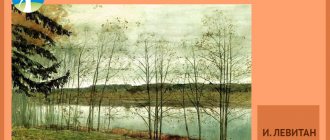“He was no longer an official, he was a musician”
Yan Tsionglinsky. Portrait of Pyotr Tchaikovsky (fragment). 1894. Smolensk State Museum-Reserve, Smolensk
Daniil Chashechkin. Portrait of Pyotr Tchaikovsky (fragment). 2015. Private collection
Alexander Khristinenko. Portrait of Pyotr Tchaikovsky (fragment). 1999. Private collection
In 1859, Tchaikovsky graduated from the Imperial School of Law. His certificate showed excellent grades in almost all subjects, and the future composer was hired by the Ministry of Justice. He continued to communicate with his fellow students at the school, among whom were many representatives of high society. Tchaikovsky visited their salons and musical evenings.
In 1861, Ilya Tchaikovsky’s friend Vasily Pisarev invited the future composer to travel with him to Europe as a secretary and translator. This trip was Tchaikovsky’s first, but later he wrote to his sister: “If I have done some colossal stupidity in my life, then this is my trip. Do you remember Pisarev? Until now I had no idea that there were such fabulously vile individuals in the world; Now it’s not difficult for you to understand what it was like for me to spend three months inseparable from such a pleasant companion.” During his travels, the composer visited Germany, France and the UK.
At home, Tchaikovsky returned to work in the Ministry of Justice. He was not promoted in the service, although the composer’s brother Modest Tchaikovsky recalled: “He not only worked hard at Malaya Sadovaya, but brought work home and wrote reports at night.” On the advice of his father, Tchaikovsky combined work and music studies. From September 1861, he attended classes with Anton Rubinstein at the Russian Musical Society (RMS), and in 1862 he became one of the first students at the newly opened St. Petersburg Conservatory. Tchaikovsky had no success in his service at this time. The position of official of special assignments, which the composer was counting on, went to another ministry employee, and in 1863 he quit and concentrated on creativity.
“Now he was no longer an official, he was a musician: his dismissal from a regular position in the Ministry of Justice happened unnoticed - he simply stopped going to the department. By the beginning of the second year, he had fifty rubles a month worth of lessons. His father's financial affairs were getting worse and Tchaikovsky could not hope for his help. Sometimes he had to run on foot from Kolomna to Okhta, his smart frock coats were worn out; some of his former acquaintances on Nevsky stopped recognizing him, perhaps intentionally, but, however, probably sincerely: he grew his hair long and wore a wide-brimmed hat.”
Nina Berberova, Tchaikovsky
Pyotr Tchaikovsky, Thunderstorm Overture
Many relatives did not accept Tchaikovsky's decision. The composer, his father and younger brothers had to move to a cheaper apartment and save on clothes. Tchaikovsky wrote to his sister: “Don’t think that I imagine becoming a great artist, I just want to do what my vocation leads me to; whether I be a famous composer or a poor teacher, my conscience will be calm.” At the conservatory, he was one of the best students: together with another student of the institution, Herman Laroche, he played Mikhail Glinka’s opera “A Life for the Tsar” with four hands, composed his first works - the overture “The Thunderstorm” based on the play by Alexander Ostrovsky, a cantata based on Friedrich Schiller’s ode “To joy", the play "Characteristic Dance".
Laroche wrote to Tchaikovsky: “You are the greatest musical talent of modern Russia. I see in you the greatest, or better yet, the only hope for our musical future.” The composer graduated from the conservatory in 1865 with the highest award - a large silver medal and the title of “free artist”.
Childhood
Pyotr Ilyich Tchaikovsky was born in the village of Votkinsk, Vyatka province (Udmurtia) in 1840. He grew up in a large family of an engineer: besides him there were three more children - two brothers and one sister. The boy's parents were fond of music; they knew how to play the flute and piano. So little Tchaikovsky fell in love with the melodic sound of musical instruments from early childhood. At the age of 5, the boy had already mastered the piano, and after another 2 years he played notes. In 1850 the whole family moved to St. Petersburg. In 1854, the mother of the future composer died of cholera. The children were left in the care of their father, who also fell ill but managed to recover.
Painting by artist A. Parkhomenko “Petya Tchaikovsky”.







